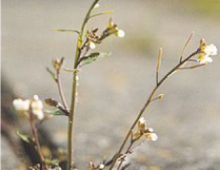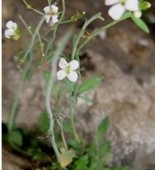Peach genome project in Biofuels Digest
In California, the US Department of Energy Joint Genome Institute (DOE JGI) is working to isolate the “evergreen” locus in peaches, which extends the growing season of the plant. Said Daniel Rokhsar, head of the DOE JGI Eukaryotic Program, “In theory, it could be manipulated in poplar to increase the accumulation of biomass.” Peach genes… [Read More]

